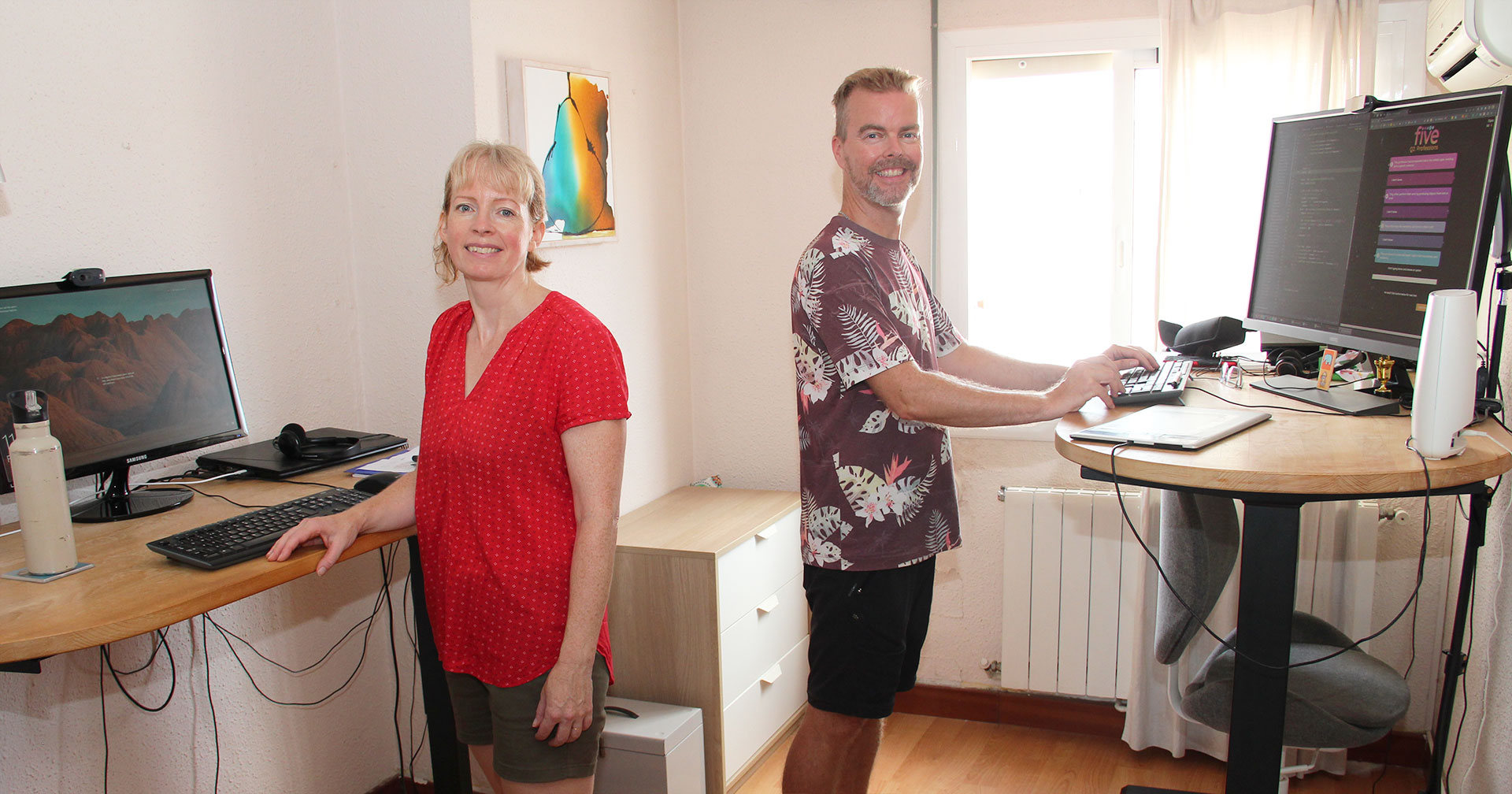
The standing desk revolution
Written by Mat
Just over a month ago, we had a bit of an office revamp with the goal of improving our health: standing desks. This was inspired by one of our favourite clients, Dr Sue Law, a lifestyle doctor whose expertise we really value.
We hired Dr Sue for a general lifestyle review and one thing she mentioned was evidence suggesting that people who spend more time standing at work have much better health outcomes. We really care about workplace health and I love a new office gadget, so we embraced Sue's suggestion to try out the benefits of standing desks. Now, a month later, we're eager to share our experiences and findings with the world!
Standing desks have been a breath of fresh air to our office. I'm not going to lie, it was quite hard at first - I could only stand for half an hour or so before my legs and feet started aching. I'm usually barefoot at work, and I've found that wearing indoor shoes while I stand has really helped with that. After a week or so, I found myself getting stronger and able to stand for longer. There have been days when I've definitely overdone it and ended up with aching feet and tiredness, so I try to listen to my body and maintain a balanced approach, alternating between sitting and standing.
This standing-sitting rhythm helps maintain my energy levels, and I'm glad we bought electric desks so that I can move them up and down without effort. They have four programmable heights: I'm using one for standing, one for sitting, and one when I'm on a Zoom call with Kat - it's a little bit lower than my regular standing height so that she's in the frame too!
Rather than the usual stiffness that accompanies hours of sitting, my standing desk provides much-needed mobility, keeping the blood flowing throughout the day. The biggest change I've noticed is after a long run. In the past I'd come back from running and sit down for three or four hours at work in the morning, and then struggle to stand up afterwards - my legs stiff and complaining. I find that standing for a few hours after a run really reduces the aches in my legs and helps me recover from exercise much faster.

My legs and back have got stronger over the past few weeks. Like me, you might find it a bit daunting at first. But after a while you'll realise you've been working all morning, standing, with barely any discomfort. The key to success? Start incrementally. We began with standing for half an hour in the first week, then an hour or two, followed by a bit of seated work, and eventually standing for longer periods as our bodies adjusted. Now I'm mostly standing during the day, with a couple of hours in the late afternoon sat down.
I've also seen an impact on my productivity and alertness. Standing makes me more active and dynamic, increasing my focus and engagement level compared to sitting. I guess it's simple - more blood flow means more oxygen to the brain.
Kat finds that standing after lunch helps digestion, and for both of us it feels more natural to have a video call or meeting stood up rather than sat down.
This experiment has really made a difference in our work lives. It's created a more dynamic work environment, improving our health and productivity. I love the way the movement and flexibility break the monotony of a desk job. If you're interested, this is the brand we bought. We're not being paid to advertise them, and I'm sure there are cheaper and better brands out there. We bought just the frame and re-used our existing desktops.
Obligatory caveat: everyone has different needs and different comfort zones. Our positive experience might not be yours, and we'd advise consulting with a qualified person (like our very own Dr. Sue Law!) to find out if a standing desk would suit you.
Standing desks have been a revelation for us, and we encourage you to join the revolution! You have nothing to lose but your backache.
Tagged under: Hot topics Hardware Health